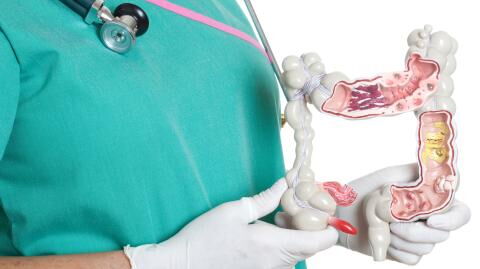The word has it that the risk of gaining weight is made much more if you continue to eat after a certain time of night. But, before making drastic changes in order to preserve your waistline, let’s look at some facts.
Discover our latest podcast
What time you should stop eating has always been a huge debate. While some may recommend no more food past 6 pm, we have to acknowledge that unless you go to sleep early and wake up early then you’ll no doubt be feeling hunger pains again by about 9 pm.
But, if you do indulge in a little late-night snack or a delayed dinner, you may still be digesting your meals when you go to bed and not giving your body adequate time to burn off the calories.

What happens if you eat late at night?
The time of night where you should cut off any snacks and meals has been a widely controversial one. Some believe that it’s what you consume that matters and not when. But, both factors matter and can have an impact on your body.
If you do happen to eat later at night then you may see some changes in your body such as weight gain, changes in satiety, a larger appetite and it can even lead to an increase in the chance of developing heart disease and diabetes.
Medical News Today explained that changes in your appetite and satiety levels are all due to the hormones leptin and ghrelin. For those who eat earlier in the day, the levels of these hormones are likely to peak earlier in the day too. This means you’ll be less hungry and more satisfied. However, if you eat later then these hormones peak later and make you want to eat more later at night.
One study published in The Endocrine Society also showed that risks of heart disease and diabetes could also be worsened when you start to eat later at night. This situation may lead your blood sugar levels to rise by 18%, and can decrease the amount of fat burned at night by 10% which can lead to kidney disease, liver damage, diabetes, and cardiovascular diseases.

So what time should we stop eating in order to maintain our weight?
Nightly food cut-off times can actually vary from person to person and really depends on what time you normally go to bed.
The general rule is you should allow your body three hours after eating to digest that way you don’t go to sleep with your stomach full.
If you do happen to eat right before bed then your stomach won’t have been given enough time to digest which can increase the possibility of GERD as well as insomnia and weight gain.
Notably, the foods many of us tend to eat late at night aren’t exactly salads but a more likely to be sugar-filled snack foods like biscuits or icecream.
A study published in Penn Medicine News shows that these high-calorie foods combined with late-night eating can also cause insulin spikes among as well as adding to weight gain. Let’s face it, cutting down on sugar, in general, has been proven to be better for our health for multiple reasons.
So, if you’re attempting to lose or maintain your weight then it’s good to take note of what you choose to consume and try to focus on making healthy choices.
But, if you still prefer to adhere to a certain time, then aim to stop eating after 9 or 10pm. A study published in Medical News Today, highlighted that any meal or snack after 10pm could delay the body’s ability to break down unused macronutrients and they will end up being stored as fat.
So, instead of opting for a light breakfast and having a hefty meal at dinner, consider starting your day off with a larger breakfast and finish off with a smaller portion so you can maintain your weight as well as your satiety and appetite levels.















